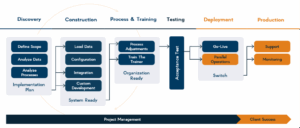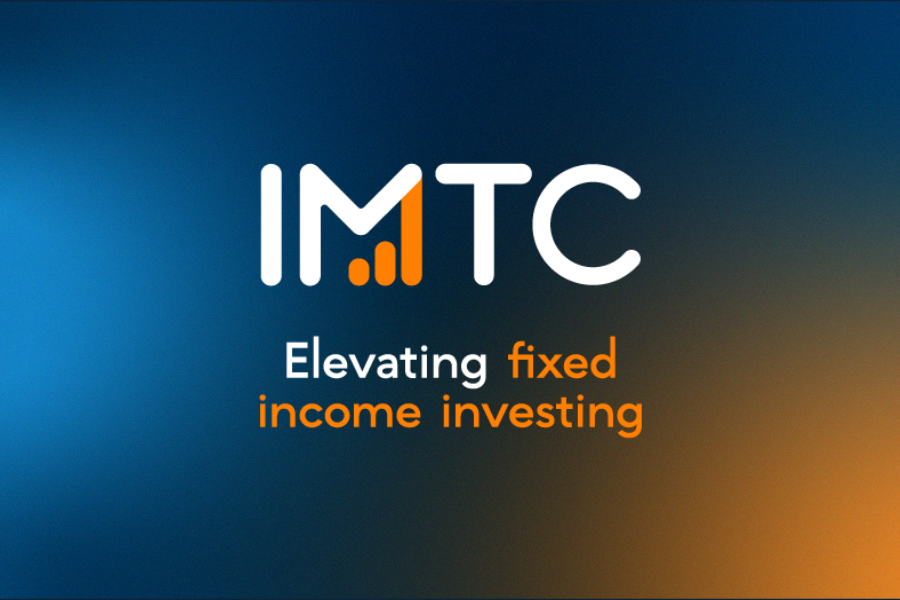5 Questions to Ask When Choosing a Vendor

As today’s investment landscape becomes increasingly competitive, it’s imperative that asset managers utilize all tools in their arsenal to generate alpha. This includes enlisting the right technology providers and capitalizing on the offerings of enterprise software solutions. According to a 2025 McKinsey & Co study, technology spending in the asset management industry has surged by 8.9% CAGR in the past five years.
However, despite increasing spend as a percentage of AUM, productivity gains in asset management have remained elusive largely because firms spend more on maintaining operations and legacy systems, rather than on future-focused transformation. McKinsey found that due to the complexity of these systems, asset managers allocate on average 60 to 80 percent of their technology budget to run-the-business initiatives, leaving only 20 to 40 percent for change-the-business operations.
The report also called out how asset managers work within siloed data environments with no comprehensive, fit-for-purpose, front-to-back platform, making it difficult to integrate diverse data sources.
Finally, the report also stated that asset managers also rely on outdated and fragmented technology stacks, which drive up operational complexity and costs, while modernization efforts are often prolonged and expensive. And even after modernization, firms frequently fail to fully decommission legacy systems, resulting in bloated application portfolios and limited efficiency gains.
So, how to adapt?
For those considering switching providers or venturing into vendor selection for the first time, IMTC is here to help.
We’ve narrowed down 5 key questions that will help your team evaluate and optimize technology partnerships and thus maximize returns.
1. Does your current vendor fully support your operating model, and will it in the future?
Unbeknownst to them, many investment teams are operating without a complete technology ecosystem. Rather than relying on workarounds, teams should have straightforward discussions with their vendors to ensure partners can service their needs.
If your vendor doesn’t have the bandwidth to support your requests now, it’s likely they may be unable to offer scalable solutions down the road, and it could be time to explore supplemental solutions or consider replacing your entire system. According to Panorama, the biggest drivers of vendor dissatisfaction are poorly defined standards and a lack of alignment from early implementation phases.
2. How confident are you that your provider will be around in 10 to 15 years?
Legacy providers are predominantly terminal based, while the future is in the cloud. As we established earlier, investment in cloud-based enterprise software solutions is on the rise as teams allocate funds for emerging technology. Rather than relying on soon to be obsolete vendors, consider taking your business to forward-thinking industry disruptors who forge innovative paths rather than conform to old standards.
Set your team up for success by tapping vendors who keep themselves relevant amid new competition. If your technology provider is outdated and doesn’t stay at the cutting edge of product offerings, it’s time to proactively identify vendors that will be around for the long haul.
3. Are they accountable and responsive?
You shouldn’t hire a vendor that doesn’t take your needs seriously, or to whom you’re just one in a long line of clients. Recall the last interactions with your current vendors: Were they responsive? How long did it take to resolve your query? Did their team take ownership of any mistakes or shortcomings?
Acquiring software is an ongoing purchase, rather than a one-time payment. You’re also buying the “relationship service” that a vendor should be affording you as a partner. That service, beyond the technology, is the level of care and attentiveness with which they handle your requests. Reliable support during implementation is integral to success.
4. How often is the system updated and enhanced?
Your vendors should not be resting on their laurels; on the contrary, they should constantly seek to improve, and thus, improve your team by updating software and rolling out new systems.
Technology is always changing, and limits expand with each new upgrade or enhanced functionality. Your vendors need to stay abreast of the latest advancements, so that you can also stay ahead of the curve. Just as your clients expect you to add incremental value and relevance to their investments while operating at peak efficiency, you should expect the same of your vendors. Ask yourself: Do the benefits justify the cost?
5. How do they document and account for your feedback?
Your vendor should enable your team to optimize its software use, and as such, should be available to provide training and support while addressing new ticket requests. Think about your last interaction with a vendor: Were system enhancements requested? Did they integrate your suggestions? You’ll want to collaborate with vendors that actively listen and engage with their clients.
In conclusion, successful implementation can only be achieved if an organization and potential vendor align their vision from the beginning. Your technology partner must fully support your model, adapt to the shifting landscape of cloud-based software solutions and prioritize client relationships—not only through accountability and responsiveness, but also by taking a customized approach to your team and integrating specific feedback.
Why IMTC is the right vendor for you
At IMTC, we believe that by curating a smooth implementation process is, we setup both companies for long term success . Our implementation process is broken into five phases: discovery, construction, process & training, testing and deployment. Throughout each step, our team works rigorously to overhaul legacy systems and provide support at pivotal decision points. At the forefront of innovation, IMTC has a deep bench of expertise in Cloud DevOps and continuous deployment.
Request a demo today to find out what IMTC can do for you.
Read our full 2019 Fixed Income Technology Landscape whitepaper for more insight.

Sources: https://www.mckinsey.com/industries/financial-services/our-insights/how-ai-could-reshape-the-economics-of-the-asset-management-industry





